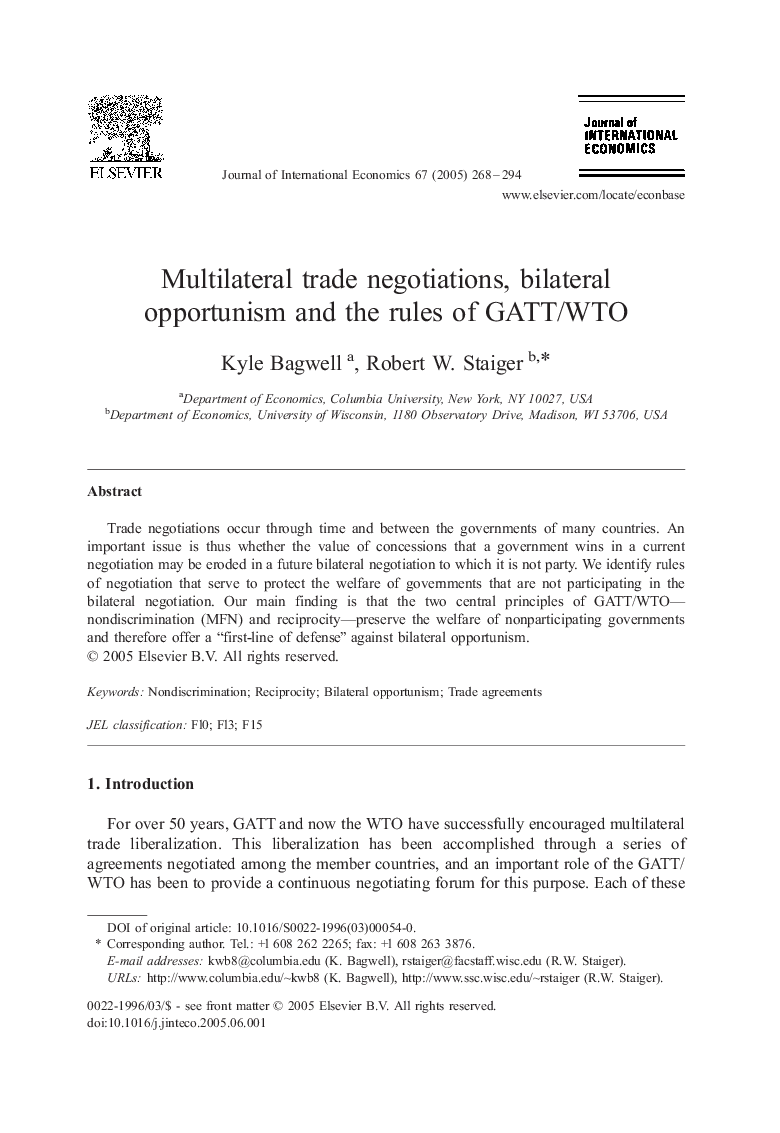| Article ID | Journal | Published Year | Pages | File Type |
|---|---|---|---|---|
| 10477401 | Journal of International Economics | 2005 | 27 Pages |
Abstract
Trade negotiations occur through time and between the governments of many countries. An important issue is thus whether the value of concessions that a government wins in a current negotiation may be eroded in a future bilateral negotiation to which it is not party. We identify rules of negotiation that serve to protect the welfare of governments that are not participating in the bilateral negotiation. Our main finding is that the two central principles of GATT/WTO-nondiscrimination (MFN) and reciprocity-preserve the welfare of nonparticipating governments and therefore offer a “first-line of defense” against bilateral opportunism.
Keywords
Related Topics
Social Sciences and Humanities
Economics, Econometrics and Finance
Economics and Econometrics
Authors
Kyle Bagwell, Robert W. Staiger,
